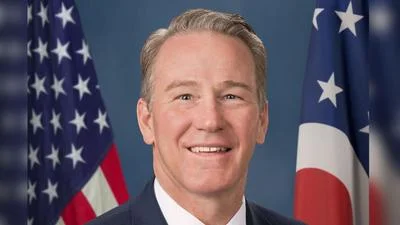Dean Rieck, Executive Director at Buckeye Firearms Association | LinkedIn
Dean Rieck, Executive Director at Buckeye Firearms Association | LinkedIn
The Washington Post recently published an editorial challenging the approach of the gun control movement, particularly in relation to the Protection of Lawful Commerce in Arms Act (PLCAA). This marks a significant change from the paper's previous stance when the PLCAA was under Congressional consideration. At that time, the Washington Post criticized the Act, describing it as "a more unfair and irrational special-interest shield from civil justice" than could be imagined.
In the latest editorial, the Washington Post comments on the attempts by gun control advocates to use the legal system to financially burden firearms manufacturers. "Well-intentioned advocates for gun control have in recent years tried to use the courts creatively to bankrupt firearms manufacturers," the editorial stated, specifically referencing a $10 billion lawsuit by the Mexican government against industry leaders. This lawsuit is currently before the U.S. Supreme Court and claims these manufacturers contributed to cartel violence.
Though the Washington Post agreed with the facts of the case, it critiqued the motivations behind the legal actions as cynical and unethical, noting, "creatively" abusing the legal system in concert with a corrupt foreign regime to assail a fundamental American liberty hardly betrays a laudable motivation.” The editorial suggested that the case concerns "the rule of law — and economic freedom," aligning with its owner's, Jeff Bezos, reported directive towards promoting "personal liberties and free markets."
The editorial outlines the intent behind the 2005 law, noting its bipartisan support and characterization during arguments by Justices like Ketanji Brown Jackson and Brett Kavanaugh. Justice Jackson remarked on Congress's role in regulating the industry, while Justice Kavanaugh raised concerns about the potential impact of a ruling for Mexico on various U.S. industries.
In line with correcting misunderstandings about congressional liability protections, the Post noted that "other industries have also enjoyed congressional liability protection," mentioning airlines, vaccine manufacturers, and internet service providers. The paper suggested solutions to gun-related issues, such as enforcing stronger border security and prosecuting straw purchasers, omitting calls for bans on firearms available to American consumers.
Concluding, the editorial asserted, "lawsuits against gunmakers cannot be the solution. Courts are not the proper venue to formulate public policy. Empowering trial lawyers this way would erode growth, slow commerce and undermine American dynamism," while acknowledging the PLCAA as supportive of pro-business and tort reform measures over Second Amendment protections.
For the Washington Post, this editorial is seen as a step forward in a changing narrative around Second Amendment-related discourse.






 Alerts Sign-up
Alerts Sign-up